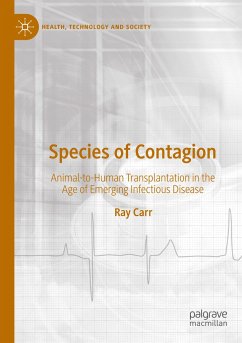Species of Contagion examines the political and social implications of xenotransplantation for bodies, nations, and species. Scientists are demonstrating a renewed interest in developing transplants for humans with tissues from pigs, with the aid of genetic engineering techniques, immunosuppressant drugs, and novel cellular technologies. Yet, some argue that these transspecies promiscuities threaten to enable new viruses to emerge in human populations. Drawing on the later works of Foucault, this book analyses contemporary power relations in animal-to-human transplantation research, ranging across governmental regulation, scientific understandings of infectious disease, and animal ethics. While many xenotransplantation practices resonate with a security approach that renders uncertainty an inherent condition of life and encourages adaptation across species boundaries, government regulation and industry also reinscribe sovereign boundaries of bodies, species, and nations. Species of Contagion illustrates the variation in the cultural and scientific imaginaries that governments and industry bring to bear on the problematic of xenotransplantation.
Bitte wählen Sie Ihr Anliegen aus.
Rechnungen
Retourenschein anfordern
Bestellstatus
Storno









